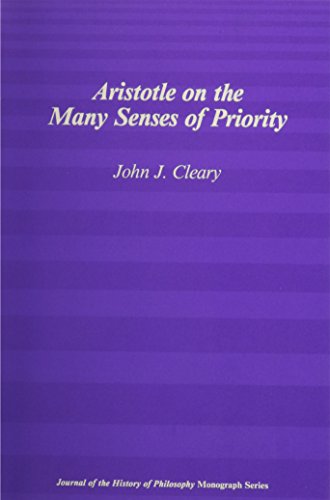The Journal of the history of philosophy monograph
1 total work
Cleary contends that one of the most revealing problems for the ambiguity of Aristotle's relationship to Platonism is that of the ontological status of mathematical objects. In support of his claim, Cleary analyzes a curious passage from Aristotle's Topics, where he appears to accept a schema of priorities that makes mathematical entities more substantial than sensible things.
How does Aristotle try to reconcile the ordering of things dictated by sciences like mathematics and dialectic with the ordering of sense experience upon which his own physics and metaphysics are based? To find the answer, Cleary reviews three different outlines of the many senses of priority given by Aristotle himself and found in Categories 12-13, Metaphysics Delta 11, and Metaphysics Theta 8. Cleary suggests there is an implicit hierarchy for Aristotle that leads him to posit the Prime Mover at its apex as complete actuality and, therefore, as the focus for the concept of priority. Having reviewed Aristotle's treatment of the many uses of priority, Cleary demonstrates how the concept is used in some typical arguments by Aristotle for his mature metaphysical positions.
